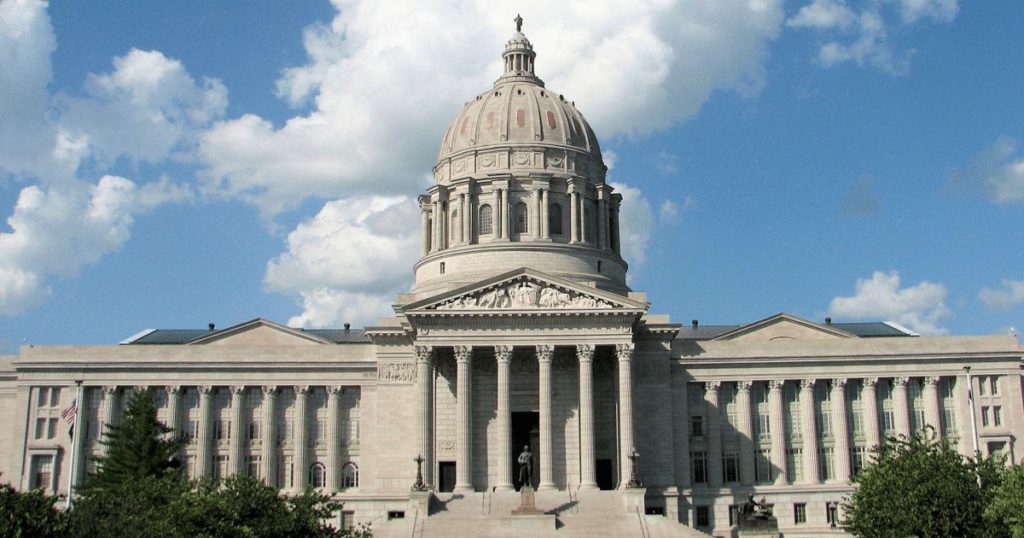Great news in the cannabis industry this week! On Tuesday, a Republican-led bill to legalize marijuana in Missouri passed a second House committee, moving the idea to the floor with only a few weeks left in the legislative year.
Similarly, cannabis industry professionals and cannabis activists have led the push to get legalization on the ballot with a comparable tight deadline. Rep. Ron Hicks (R) is the sponsor of the “Cannabis Freedom Act,” which was approved by the Rules – Legislative Oversight Committee in a 6-4 vote after clearing the House Public Safety Committee by the skin of its teeth late last month.
Missouri Bill Challenges And Opportunities
Timing is indispensable, as the session is due to finish on May 13th. However, hope is not lost as the deadline can be met, according to Hicks, who recently stated that he has “seen bills sail through the process in a week.” He believes that the bill’s success boils down to the will to fight for it.
The bill would mainly legalize the sale and possession of cannabis for adults. It would also allow for expungements, establish social consumption facilities, and allow cannabis businesses to claim state tax deductions should it be successful.
Members of the previous committee did wind up accepting many adjustments before this recent decision regardless of the fact that advocates expected to see the bill proceed through the committee process without any changes to the proposed legislation. The amendments in question affect licensing caps, regulatory control over the cannabis business, and a plan that Hicks calls a “poison pill” since it restricts who is eligible for equity benefits -which we do not want or need in the cannabis industry.
Great State Strategies lobbyist Eapen Thampy told Marijuana Moment that he expects a pushback against the licensing cap provision on the floor.
He stated his belief that the Missouri General Assembly is aware of the concerns of cronyism and corruption that have caused so much controversy in the medicinal marijuana program. It’s great news to know that the Missouri government acknowledges and understands the error they made with the medical licensing process and that they are also taking steps to avoid the same mistake with recreational cannabis. “There’s a real interest right now in avoiding that outcome with a recreational program. Missouri Republicans and the Democrats on this issue take a very free-market point of view,” stated Thampy.
Possible Achievements Of The Cannabis Freedom Act
What do Missouri cannabis consumers and activists and the Missouri cannabis market stand to gain with the success of this cannabis legislation?
Cultivation, possession, and licensing
Adults aged 21 and up would be able to buy and possess cannabis from licensed merchants under the law. No possession limit seems to be included in the bill; it merely repeals existing laws that make the behavior illegal. Additionally, adults will be able to grow up to 12 plants for personal use.
Similar to the medical cannabis program, the Missouri Department of Health and Human Services would be in charge of overseeing the adult-use recreational cannabis program. Cannabis shops, growers, processors, transporters, and wholesale distributors would be needed to adopt rules for obtaining temporary and annual licenses from the department.
In Public Safety, amendments were made that would possibly double the number of medical cannabis licensees to serve the adult-use market. There would be no limit on recreational licenses according to the proposed legislation.
Adults will be able to “contract” with a registered grower to cultivate up to 12 plants for personal use, and they can also engage with licensed processors to make marijuana products.
Protections and equity
There are protections and amendments that the “Cannabis Freedom Act” would have on those with cannabis-related sentences and charges should the bill be successful.
The bill includes expungement provisions, which allow those who had non-violent marijuana convictions for acts that are now legal under the bill to petition the courts to have their records cleared. Those who are currently incarcerated may be eligible for resentencing, and those on probation or parole may consume marijuana.
Under the law, police would not be able to conduct a warrantless search of a person’s private property based just on the odor of marijuana. Cannabis will not be able to be used “as a factor in family court procedures,” either.
The bill also protects medical cannabis patients by stating that they cannot share their patient information with federal authorities.
Language to develop a loan program to help women- and minority-owned cannabis firms engage in the market was included in the committee’s licensing amendment last month. However, a GOP member appended a change that could jeopardize Democratic support by revising the equality requirements to indicate that only women who are “biologically” female are eligible for the benefit -which is not equitable.
Tax and Finance and Social Use
The state Department of Revenue would set a maximum tax rate of 12% on adult-use cannabis sales. Medical cannabis products would not be subject to such a levy.
Revenue from the recreational marijuana market would be deposited into a “Cannabis Freedom Fund,” of which the administrative operation costs would be covered first. The rest of the money would be “split equally between teacher wages, first responder pensions, and the Missouri veterans commission.”
Licensed marijuana enterprises would be entitled to take state tax deductions up to the amount they would be qualified for under federal law if they operated in a federally permitted industry. Cannabis businesses around the country must pay federal taxes, but they are not eligible for tax breaks.
If a person applies for a Missouri cannabis business license and pays the application fee, they may be able to deduct that expense if their application is denied.
Hicks’ bill also includes a clause from a different cannabis measure that would allow hotels, bars, and restaurants to “sell and serve marijuana or marijuana products in private events or locations” by obtaining “hospitality licenses.”
In a previous cosponsorship note to colleagues, Hicks stated that his bill has definite room for improvement. He invited members to provide “further feedback as we progress through the legislative process.” The senator also stated that he is collaborating with members of the Black Caucus “to ensure that businesses in this market space can access loan and grant programs to ensure that entrepreneurs compete on an equitable footing.”
All in all, this piece of legislature is a significant win for the Missouri cannabis market, and all those involved must continue the push to make it a reality! We applaud the Missouri government for realizing and working not to repeat their past mistakes with the medical cannabis legislation.
















